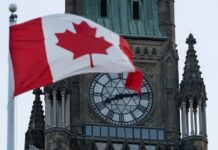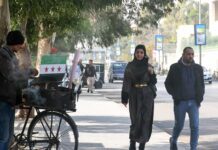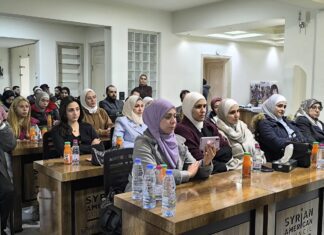
Syrian security forces have captured Atef Najib, a cousin of former dictator Bashar al-Assad and one of the most notorious war criminals of the fallen regime, following a ten-day tracking operation in Latakia Governorate. Najib, infamous for his role in the violent suppression of protests in Daraa that ignited the Syrian revolution in 2011, was attempting to flee Syria through smuggling routes when he was intercepted and arrested near the town of Al-Haffa.
A Decade-Long Hunt Ends in Arrest
The arrest was confirmed by Latakia’s Director of Public Security, Mustafa Kenafati, who stated that Najib had been under close surveillance after he left Damascus for the Jableh countryside, likely seeking refuge among regime loyalists. Security forces then set up a carefully coordinated ambush, successfully capturing Najib before he could cross the border.
According to Kenafati, Najib was traveling with a group of former Assad officers, all of whom had evaded the settlement centers established after the regime’s collapse in December. While some of these individuals remain at large, Kenafati vowed that authorities would continue pursuing all war criminals who played a role in the oppression and suffering of Syrians.
“This step comes within the framework of the authorities’ efforts to hold accountable those responsible for crimes against the Syrian people and enhance security and stability in the region,” Kenafati told SANA.
A Brutal Legacy
Brigadier General Atef Najib was one of the most feared figures of the Assad regime’s security apparatus. As the head of the Political Security Branch in Daraa at the start of the Syrian revolution, he was directly responsible for the arrest and torture of children whose graffiti demanding freedom sparked the first mass protests against Bashar al-Assad’s rule in March 2011.
According to human rights organizations, Najib personally oversaw the torture and mutilation of detained minors, including Hamza al-Khatib, whose brutalized body was later returned to his family. His actions led to nationwide outrage, igniting the Syrian uprising that would eventually overthrow the Assad regime 13 years later.
During the early months of the revolution, local Daraa tribal leaders and Syrian dignitaries pleaded with Najib to release the detained children and de-escalate tensions. Instead, he reportedly mocked them, making vulgar remarks about their families before sending heavily armed security forces to crush the protests.
In response to mounting international scrutiny, Bashar al-Assad initially claimed to have launched an internal investigation into Najib’s actions. However, rather than holding him accountable, Assad quietly transferred Najib to Idlib before placing him on travel restrictions in June 2011.
Najib was later sanctioned by the United States on April 29, 2011, and by the European Union on May 9, 2011, for his role in crimes against humanity. The former regime even seized the assets of his sister, Reem Najib, and her husband, Alaa Ibrahim, in December 2020, in what many viewed as an attempt by Assad to shield himself from further scrutiny.
A Symbolic Step Toward Justice
Najib has now been transferred to the relevant judicial authorities to face trial for his crimes, with Syrian officials promising a transparent legal process. Kenafati emphasized that the new Syrian government is committed to legal accountability rather than extrajudicial punishment, a stark contrast to the brutality of the previous regime.
“The mechanism for holding war criminals accountable in Syria will be through competent courts, not through random methods,” Kenafati said. “All detainees are subject to legal trials within the framework of justice.”
His arrest marks one of the first major trials of an Assad regime official and signals the new administration’s intent to hold those responsible for atrocities accountable.
However, human rights activists warn that many more figures like Najib remain at large, including senior intelligence officers and military commanders who orchestrated massacres, torture campaigns, and forced disappearances.
Public Reactions
News of Najib’s capture has been met with jubilation across Syria, particularly in Daraa, where residents see it as long-overdue justice for the brutal crackdown that shaped the course of the revolution. Victims’ families and activists have called for more high-ranking Assad officials to face trial, with some demanding that international courts intervene to ensure full accountability.
“This is just the beginning,” said Omar al-Masri, a Daraa-based activist whose cousin was among those tortured in Najib’s detention centers. “Every single war criminal who served the regime must be brought to justice. The Syrian people will never forget what they did to us.”








